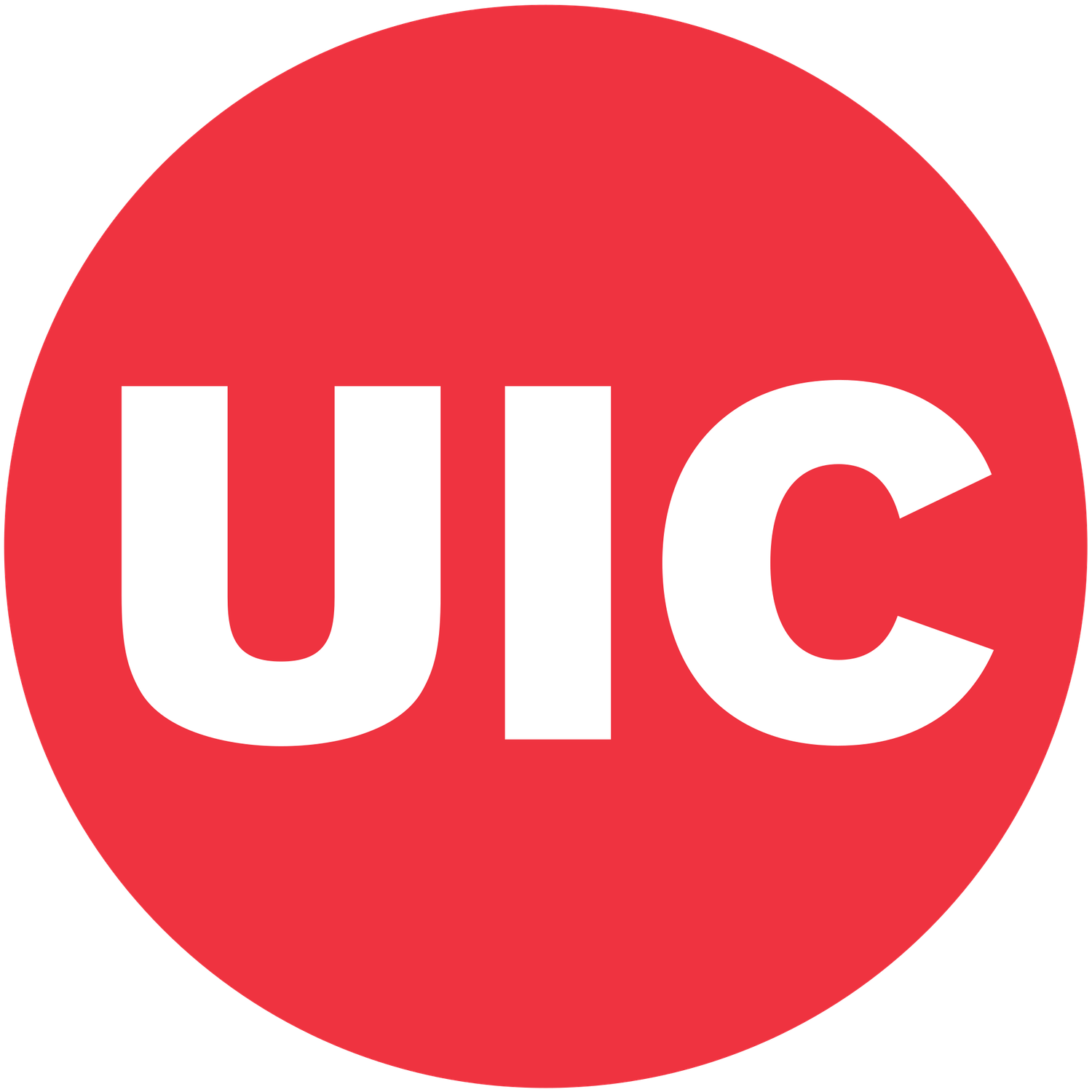Request Demo
Last update 08 May 2025

Lenox Hill Hospital
Last update 08 May 2025
Overview
Related
25
Clinical Trials associated with Lenox Hill HospitalNCT06418022
Evaluating Fluid Responsiveness in Intensive Care Unit Patients Using VTI and Trendelenburg Positioning. TREND-US Trial.
Fluid administration is a commonly performed in the ICU for critically ill patients. However, it can lead to complications such as fluid overload, pulmonary edema, and increased mortality in some patients. Therefore, identifying patients who are likely to respond to fluid therapy is crucial for optimizing their management. Several methods have been used to assess fluid responsiveness, such as passive leg raising, stroke volume variation, and cardiac output monitoring. However, these methods have limitations and may not be feasible in all patients. In this study, the investigators aim to evaluate the use of velocity time integral (VTI) and Trendelenburg positioning in predicting fluid responsiveness in ICU patients.
Start Date01 Apr 2024 |
Sponsor / Collaborator |
NCT04751344
RANDOMIZED CONTROLLED TRIAL COMPARING LIPOSOMAL BUPIVACAINE VERSUS BUPIVACAINE HCL FOR POSTOPERATIVE MANAGEMENT OF FOREFOOT SURGERY
Prospective, randomized, controlled single-blinded trial comparing liposomal bupivacaine with bupivacaine HCl for postoperative management. Upon completion of the forefoot procedure in the operative room the subject will be entered into the randomization system which will specify whether to inject 10cc (5mg/mL) of bupivacaine HCl or 8cc (13.3 mg/mL) liposomal bupivacaine, both considered routine care procedure. Thereafter, postoperative pain will be assessed and measured using a Visual Analog Scale (VAS) scoring scale post-operatively at 2 hours, 24 hours, 48 hours and 72 hours. In addition, the amount of oral morphine equivalents (OME) required postoperatively and time to first use of OME will be measured. Our hypothesis is that patients who received liposomal bupivacaine will have less post-operative pain and require less OMEs.
Start Date16 Jun 2020 |
Sponsor / Collaborator |
NCT01996436
The Intra-arterial Vasospasm Trial(iVAST)- A Multi-center Randomized Study
The primary objective of the study is to determine the optimal intra-arterial drug treatment regimen for arterial lumen restoration post cerebral vasospasm following aneurysmal subarachnoid hemorrhage. The secondary objective is to evaluate clinical outcome at 90 days post discharge following optimal intra-arterial drug treatment for cerebral vasospasm.
We hypothesize that Intra-arterial (IA) infusion of a combination of multiple vasodilators is more efficacious than single agent treatment cerebral vasospasm therapy.
All procedures done as a part of this study are standard hospital care procedures done to treat cerebral vasospasm and all drugs to be used are FDA approved.
We hypothesize that Intra-arterial (IA) infusion of a combination of multiple vasodilators is more efficacious than single agent treatment cerebral vasospasm therapy.
All procedures done as a part of this study are standard hospital care procedures done to treat cerebral vasospasm and all drugs to be used are FDA approved.
Start Date29 Aug 2016 |
Sponsor / Collaborator |
100 Clinical Results associated with Lenox Hill Hospital
Login to view more data
0 Patents (Medical) associated with Lenox Hill Hospital
Login to view more data
5,834
Literatures (Medical) associated with Lenox Hill Hospital15 May 2025·Spine
Redefining Clinically Significant Blood Loss in Complex Adult Spine Deformity Surgery
Article
Author: Ames, Christopher P. ; Schwab, Frank J. ; Daher, Mohammad ; Line, Breton G. ; Smith, Justin S. ; Mundis, Gregory M. ; Protopsaltis, Themistocles S. ; Bess, Shay ; Shaffrey, Christopher I. ; Gum, Jeffrey L. ; Klineberg, Eric O. ; Gupta, Munish C. ; Lenke, Lawrence G. ; Lafage, Virginie ; Kebaish, Khaled M. ; Singh, Manjot ; Burton, Douglas C. ; Diebo, Bassel G. ; Daniels, Alan H. ; Lafage, Renaud ; Passias, Peter G. ; Lewis, Stephen M. ; Hostin, Richard ; Hamilton, Kojo D. ; Xu, Andrew ; Eastlack, Robert K.
01 May 2025·Spine
Cost-effectiveness Improves for Operative Versus Non-operative Treatment of Adult Symptomatic Lumbar Scoliosis at Eight-year Follow-up
Article
Author: Lafage, Virginie ; Schwab, Frank J. ; Kelly, Michael P. ; Shaffrey, Christopher I. ; Crawford, Charles H. ; Yanik, Elizabeth L. ; Bess, Shay ; Gupta, Munish ; Edwards, Charles ; Lenke, Lawrence G. ; Ames, Christopher P. ; Glassman, Steven D. ; Smith, Justin S. ; Baldus, Christine R. ; Koski, Tyler ; Buchowski, Jacob M. ; Kim, Han Jo ; Lurie, Jon D. ; Bridwell, Keith H. ; Carreon, Leah Y.
01 May 2025·World Neurosurgery
Exoscopic Clipping of a Superior Cerebellar Artery Aneurysm via a One-Piece Orbitozygomatic Approach: Educational Operative Video
Article
Author: Abramyan, Arevik ; Croft, Zoey ; Ellis, Jason ; Langer, David ; Chuang, Joaquin ; Rychen, Jonathan
41
News (Medical) associated with Lenox Hill Hospital24 Feb 2025
A sonolucent cranial implant manufacturer is working with a wireless ultrasound developer to offer neurosurgeons a
minimally invasive
look inside the brains of patients.
Sound can pass through the FDA-cleared ClearFit neuro reconstructive implants from Longeviti Neuro Solutions. The implants are made of polymethyl methacrylate (PMMA), which allows for ultrasound monitoring of patients after they’ve had complex brain procedures.
Baltimore-based Longeviti is collaborating with Vancouver, British Columbia-based Clarius. Clarius makes the HD3 portable, handheld ultrasound system and adapted its ultrasound app for easier use of its scanners for neurological applications.
Related: Can Maryland make Baltimore the next medtech hub?
Longeviti said the two technologies combined can help patients minimize radiation exposure from CT scans, citing a study that suggested ultrasound imaging through sonolucent implants is a safe alternative with an estimated savings of up to $4,000 per patient.
“Why wouldn’t every neurosurgeon want the luxury of a ‘window to the brain,’ accessible anytime and anywhere, in all of their patients? That’s what ClearFit allows us to do,” Hoag Memorial Hospital Brain Tumor Program Medical Director Dr. Christopher Duma said in a Longeviti news release.
Longeviti Chief Medical Officer Dr. David Langer described the combination of the two company’s technologies as a “neurosurgical stethoscope.”
“The Clarius device gives the neurosurgeon and all advanced care practitioners the ability to perform bedside ultrasound with a tool in their pocket,” said Langer, a neurosurgeon and chair of neurosurgery at Lenox Hill Hospital in New York City. “… I am certain that this will have an enormous impact on neurosurgical care going forward.”
Clarius says its wireless scanners are purpose-built for every specialty and cost much less than traditional ultrasound systems.
The AI-powered app (available for iOS and Android devices) “automatically optimizes an image for superior brain scans, making it easy for even novice users to quickly learn to use ultrasound,” Clarius said in its own news release.
“Our partnership with Longeviti is another excellent example of how the open-platform design of Clarius ultrasound enables us to partner with other medical innovators dedicated to improving patient care,” Clarius President and CEO Ohad Arazi said. “We look forward to working with Longeviti to expand the use of handheld ultrasound for neurology and ultimately help outcomes for cranial implant patients.”
Related: What is minimally invasive medtech? It depends on who you ask.
10 Feb 2025
German drugmaker Boehringer Ingelheim didn’t share any data behind the top-line result, instead promising that the efficacy and safety findings would be unveiled in the second quarter.\n Boehringer Ingelheim has cemented the potential of its idiopathic pulmonary fibrosis (IPF) drug with a second phase 3 win in a related lung disease leading the drugmaker to expand the indications it will seek FDA approval for.The FIBRONEER-ILD trial saw 1,178 patients with progressive pulmonary fibrosis (PPF) receive either a 9 mg or 18 mg dose of the PDE4B inhibitor nerandomilast or placebo twice a day for 52 weeks. The study hit its primary endpoint of demonstrating an absolute change from baseline in forced vital capacity—a measure of the volume of air that a patient can breathe out—Boehringer said in a Feb. 10 release.The German drugmaker didn’t share any data behind the top-line result, instead promising that the efficacy and safety findings would be unveiled in the second quarter.“Initial data readouts of the FIBRONEER trials support a generally consistent safety and tolerability profile when compared to the phase 2 IPF study, with overall adverse events comparable to those seen in the placebo group,” the company said.Armed with the latest results, Boehringer said it will request that FDA and global regulators approve nerandomilast as a treatment for PPF, a type of interstitial lung disease. The company has already said it will seek approval for nerandomilast in IPF after proclaiming a win in a phase 3 trial for that lung disease in September 2024. Again, the company opted to hold back any concrete data from that trial for later in this year.When it comes to managing IPF, physicians already have Boehringer’s Ofev and Roche’s Esbriet. However, those drugs only slow the progression of fibrosis, while attempts to produce molecules that further slow, or ideally stop, progression have failed to prove their worth.By targeting phosphodiesterase 4B (PDE4B), nerandomilast is meant to have a mechanistic advantage over the incumbent products. Targeting PDE4 drives anti-inflammatory and antifibrotic effects, but attempts to develop oral inhibitors of the enzyme in respiratory diseases have been hindered by class-related systemic adverse events such as diarrhea and headaches.“The positive FIBRONEER-ILD topline result shows the potential of nerandomilast in progressive pulmonary fibrosis,” Shashank Deshpande, Head of Human Pharma at Boehringer, said in the release. “The hope is that the safety and tolerability profile we are initially seeing could potentially help to reduce treatment challenges.”

Phase 3Phase 2Clinical Result
05 Jul 2024
The initiative seeks to understand the crucial role of the omentum, a lesser-known yet vital organ in cancer treatment and overall health.
From diagnosis to determination
Meg's journey with ovarian cancer began in 2014, marked by vague symptoms like nausea and abdominal distension. “I looked like I was four months pregnant by night,” she recalls. Despite these signs, the absence of an early detection test for ovarian cancer delayed her diagnosis until her gynecologist identified a suspicious complex cyst. A subsequent CA 125 test confirmed elevated levels, leading to a surgical intervention by a gynecological oncologist, who discovered and removed the cancer.
Meg added: “In 2014, I faced a stage two cancer diagnosis, and for eight years thereafter, I had no evidence of disease. It was a period of cautious optimism and recovery. However, in 2023, I experienced a recurrence, which led to another round of surgeries and chemotherapy. As I approach nearly a year since completing chemotherapy, I'm grateful that all my personal health indicators and statistics are currently positive.
“Ovarian cancer is notoriously under-diagnosed because of its vague symptoms. The acronym B.E.A.T. helps: Bloating, Eating difficulties, Abdominal and back pain, and Toilet issues.”
The omentum and digestive woes
Post-surgery, Meg faced unexpected digestive issues, which she traced back to the removal of her omentum. The omentum, an apron-like fat organ, plays significant roles in the immune and lymphatic systems and fat storage. Its removal often results in severe digestive issues, especially when commercial foods high in salt are consumed.
googletag.cmd.push(function () {
googletag.display('text-ad1');
});
Meg’s personal experience with digestive distress, such as a six-inch abdominal distension after consuming a small amount of chili at a restaurant, highlighted the urgent need for more research on living without an omentum. “Quality of life was a real issue,” she emphasizes.
Birth of the Omentum Project
The Omentum Project
was born out of Meg’s determination to address these challenges. The study focuses on salt’s impact on women with and without an omentum. “We’re seeking 200 women with an omentum and 200 without, who are randomly assigned to low-sodium or high-sodium groups,” Meg details. The study involves a one-time home experiment where participants consume a standardized amount of popcorn and water, with the high-sodium group adding a bouillon cube to their water.
This citizen science initiative faced recruitment challenges due to strict eligibility criteria, such as excluding those with high blood pressure, heart disease, or obesity. Yet, the project aims to gather significant data to understand better the omentum’s role and its impact on digestive health.
The omentum’s untapped potential
The omentum’s potential extends beyond ovarian cancer. Meg highlights innovative uses in brain cancer treatment, lymphedema management, and Alzheimer’s research. At Lenox Hill Hospital, researchers are using the omentum to cross the blood-brain barrier with chemo in recurrent brain cancer cases. MD Anderson studies show success in resolving lymphedema by transplanting the omentum into affected areas, while the University of California at Davis explores its application in improving blood flow in Alzheimer’s patients.
“Despite its critical functions, the omentum is largely overlooked in medical education and research,” Meg points out.
Dr. de Nicola’s article
on the omentum as a powerful regenerative source underscores its importance and the need for heightened awareness.
Empowering survivors with knowledge
Meg stresses that the project does not advocate against removing the omentum for cancer treatment. Instead, it seeks to empower survivors with knowledge to manage life without this organ. “Just like we educate those without an appendix about their microbiome, we want to provide information for those without an omentum,” Meg says. “We aim to improve their quality of life by understanding how they might need to adjust their diet and lifestyle.”
The Omentum Project represents a crucial step in recognizing and addressing the challenges faced by ovarian cancer survivors. By shedding light on this understudied organ, Meg hopes to pave the way for more research and support, ultimately improving the lives of many women worldwide.
The unpredictable nature of cancer
She told OSP the journey has underscored the unpredictable nature of cancer and the importance of ongoing vigilance and treatment advancements.
“One significant advancement in my journey has been the approval of new drugs like Olaparib for ovarian cancer, which has been pivotal for cases like mine where there's been recurrence. Knowing that such targeted therapies are available provides a sense of reassurance and hope, demonstrating the strides made in personalized medicine.”
Meg says that living without an omentum, as a result of my surgeries, has brought its own set of challenges. The omentum, often overlooked, plays a crucial role in health, particularly in dietary considerations post-surgery. Learning about the impact of salt intake has been eye-opening. Many undergoing chemotherapy find comfort in foods that are often high in salt, like canned soups, not realizing the potential harm. Raising awareness about these nuances, Meg says, is crucial for empowering individuals to make informed choices during recovery.
She said: “My involvement with the Omentum Project has been immensely fulfilling. Initially, finding information specific to living without an omentum was challenging. This gap inspired me to collaborate with dedicated volunteers and medical professionals to fill that void. Our efforts have already made a tangible difference, particularly in educating others about dietary adjustments post-omentectomy.”
Looking ahead, Meg says her advocacy work aims to expand awareness and support for those navigating similar journeys. The support she received from the community—volunteers who dedicate their time, medical professionals who share their expertise, and fellow survivors who offer empathy—has been invaluable.
“Together, we strive to improve outcomes and quality of life for individuals facing similar challenges, ensuring that no one feels alone in their battle against cancer,” she says.
As Meg reflects on her experience, she says she’s reminded of the resilience of the human spirit and the power of community in overcoming adversity.
“By sharing my story and contributing to initiatives like the Omentum Project, I hope to inspire others and contribute to a future where cancer treatments continue to advance, offering renewed hope and healing.”
100 Deals associated with Lenox Hill Hospital
Login to view more data
100 Translational Medicine associated with Lenox Hill Hospital
Login to view more data
Corporation Tree
Boost your research with our corporation tree data.
login
or

Pipeline
Pipeline Snapshot as of 05 Nov 2025
No data posted
Login to keep update
Deal
Boost your decision using our deal data.
login
or

Translational Medicine
Boost your research with our translational medicine data.
login
or

Profit
Explore the financial positions of over 360K organizations with Synapse.
login
or

Grant & Funding(NIH)
Access more than 2 million grant and funding information to elevate your research journey.
login
or

Investment
Gain insights on the latest company investments from start-ups to established corporations.
login
or

Financing
Unearth financing trends to validate and advance investment opportunities.
login
or

AI Agents Built for Biopharma Breakthroughs
Accelerate discovery. Empower decisions. Transform outcomes.
Get started for free today!
Accelerate Strategic R&D decision making with Synapse, PatSnap’s AI-powered Connected Innovation Intelligence Platform Built for Life Sciences Professionals.
Start your data trial now!
Synapse data is also accessible to external entities via APIs or data packages. Empower better decisions with the latest in pharmaceutical intelligence.
Bio
Bio Sequences Search & Analysis
Sign up for free
Chemical
Chemical Structures Search & Analysis
Sign up for free
